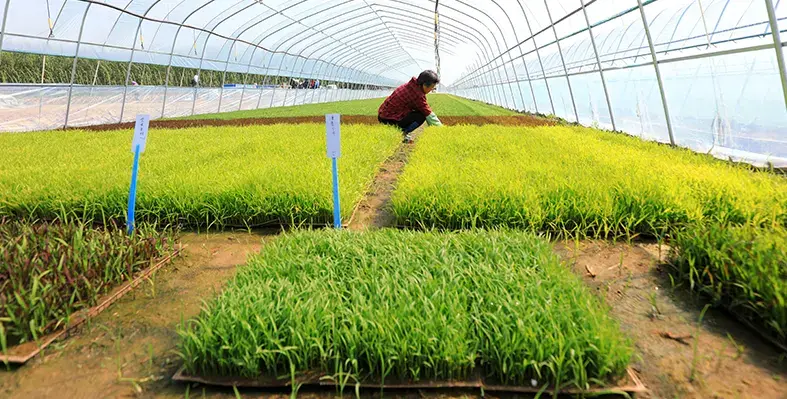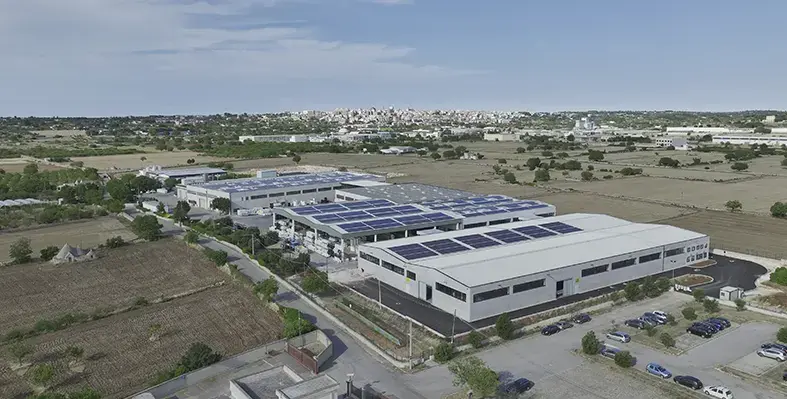
Greenpeace East Asia report urges support for China’s climate-resilient farming and food security initiatives. (Image source: Adobe Stock)
A new report released by Greenpeace East Asia has shed light on the growing role of farming cooperatives and local enterprises in helping Chinese farmers adapt to climate change
Titled “Climate Change Adaptation in Chinese Agriculture: The Role of Cooperatives and Local Enterprises”, the report explores the diverse strategies being adopted in response to escalating climate impacts such as rising temperatures, altered rainfall patterns, and increasing frequency of extreme weather events.
The study, based on field observations, interviews, socio-economic assessments, and decades of meteorological data, focuses on small-scale traditional farmers, farming cooperatives, and moderately large-scale enterprises. The research examined three regions in China with contrasting climates: near Baoding City in Hebei Province, the Loess Plateau near Xianyang City in Shaanxi Province, and an urban farming zone in Chongqing Municipality.
“Farmers are responding to climate change with the resources available to them,” said Li Zhao, a Beijing-based senior researcher with Greenpeace East Asia. “But they have limited resources, support, or awareness about climate impacts to respond proactively. Adaptations were often provisional steps to remedy the most immediate crisis. The costs that farmers accrue in responding to climate change still go unseen by society at large. Some farmers have quit altogether, while many are determined to adapt. Adaptation requires a mix of institutional support and enabling local solutions.”
According to climate data reviewed in the report, temperature increases and fluctuating rainfall patterns have intensified since the 1970s. In Hebei, where farmers historically experienced rare droughts, three major dry spells lasting more than 100 days occurred after the year 2000—compared to just one from 1971 to 2000. Simultaneously, maximum consecutive rainfall events have increased, raising flood risks. These pressures have pushed many farmers in the region to switch from water-intensive crops like wheat to more resilient alternatives such as maize and sweet potatoes.
In Chongqing, warming trends and widening rainfall ranges—from 850–1250 mm annually (1971–1995) to 750–1620 mm (1996–2024)—have required broader adaptations. Farming cooperatives there have played a pivotal role in shifting cropping patterns to match seasonal changes, branching into agro-tourism, and introducing water-saving irrigation techniques. After the 2022 drought, the availability of larger shared machinery, like rotary tillers supplied by local enterprises, helped traditional farmers recover more effectively.
The report concludes that farming cooperatives and enterprises not only serve as critical nodes for post-disaster recovery and climate knowledge dissemination, but also face substantial vulnerabilities. Their infrastructure and mechanisation investments expose them to high financial risks in the event of climate-related damage.
“Providing widespread support to local solutions is important,” remarked Zhao. “Farming cooperates and enterprises’ current role indicate strong potential as an access point to drive adaptation. The research evidences a connection between strengthening social cohesion and developing climate resilience. Mutual aid and resource sharing are critical after climate disasters strike.”
Greenpeace East Asia is urging the development of accessible platforms to convert scientific knowledge into practical resources for farmers. The report emphasises that successful climate adaptation in agriculture will require collaborative policy-making, financial backing, technological innovation, and a concerted focus on enabling grassroots action and peer-to-peer support systems.







